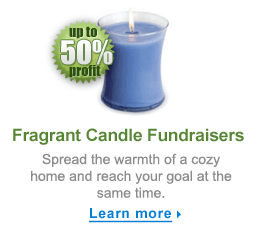I just read a fascinating article on the Charlotte, N.C. National Public Radio website, WFAE.org. It was called “Finding Chemistry In The Boardroom Through Speed-Dating”.
The article reported on a recent gathering of several area non-profit agencies and approximately 30 people who were seriously interested in becoming board members.
Just like regular speed dating, the two parties, the non-profit and the board seeker, sat at a table in a large room and talked for a few minutes before a bell rang and everyone shifted to meet new people.
During the time together, the agencies and the candidates tried to get a feel for each other to determine if they would make a good match.
I have never speed dated before, professionally or personally, so I can only imagine that the pressure during this brief period must be high. I have, however, conducted many job interviews, but I’ve never placed a time limit on them, so I would guess that would force the questions and answers to be very focused. Which is a good thing, I suppose.
This concept got me to wondering. What questions would I ask in such a situation. First of all, I thought about it from the perspective of the non-profit, but then I remembered that this event was really more of a two-way conversation, rather than a standard, old-fashioned job interview. So, then I started thinking about what I, myself, would have asked if I were the person looking to find the right non-profit to serve.
I think the first question I’d have for the non-profit is “why”. Why are you here looking for board members? I’d be curious to see if it was more out of desperation rather than just a real search for new talent in unexpected places.
The answer would tell me if the group were proactive and creative or passive and uninspiring. I say this because I believe that a non-profit that has its act together is going to attract a whole host of board candidates organically. This is the kind of group I’d want to be a part of. If the non-profit came to this speed date event, only because they couldn’t find anyone to join them, I’d be very worried.
The next question I’d pose to the non-profit would be about the board itself. I’d ask a very open-ended question, such as “Tell me about your board.” I would purposefully take this broad approach, because I’d want to see what they thought was important to tell me.
I’d be looking for information about how the individual members got a long with each other, how passionate they were about the organization, if they had regular board training sessions and retreats, if they were always looking forward into the future of their group, and what kind of turn-over they experienced in their ranks. From their answer, I’d be able to gauge if there were a high level of drama on this board. Were politics more important than their mission?
I think I’d also be able to tell a lot from the group’s body language during their answer. Were they open and relaxed when they spoke to me or was their description of their operation tense, worried, and negative? When you give people an open-ended question like this one, they tend to reveal a great deal more about themselves than they would have if you only asked them yes or no type of questions.
The next bit of information I’d want to ask about is how their board relates to their executive director. If the director were there, I’d still ask the question to see how comfortable/uncomfortable the situation became. It would be pretty easy to determine if they were telling the truth about their relationship or if they were feeding me a line of you-know-what.
I would specifically want to know how the board viewed their role in relation to the executive. Did the board micro-manage him or her or did they see themselves as a resource for their organization’s operational leader? I know that I would not want to be part of a board where we regularly poked our noses into the day to day goings-on of the group. This undermines the director and hurts the growth of the non-profit. Yet, many boards confuse their responsibilities and do just that. If I had several choices of boards which I could join, I would look for a group whose members knew their roles and were comfortable in them.
What questions would you ask if you were in this position? If you could pick your own perfect board situation, what would it be? Please share your ideas with us in our comment section. I’d love to hear what you have to say!
Photo by: pasukaru76







